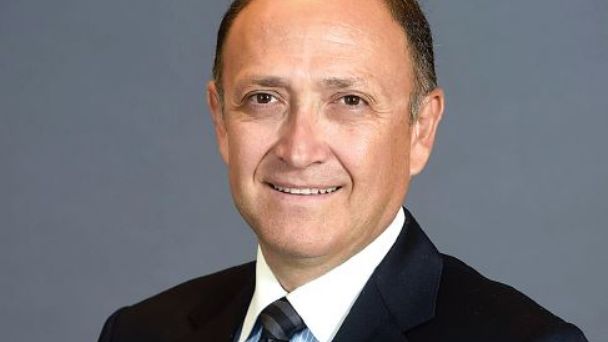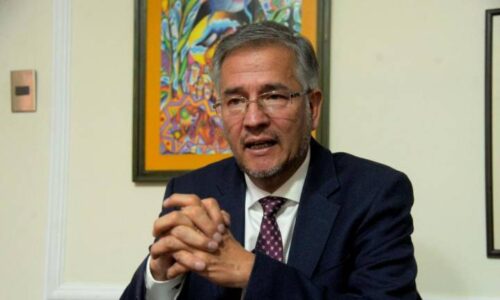

29 September 2021
Judicial Reform for Democracy
Since continuing Bolivian democracy was recovered in 1982, one of the greatest institutional challenges -still pending almost 40 years later- is the reform of the justice administration system.
In these last four decades, the political system responded with some initiatives –unfortunately, only a few– that contributed to the progress of democratic institutions in the country. The political agreements of 1990 made possible impartial electoral courts and made possible the constitutional reforms of 1997 and 2004. Within the framework of these consensuses, for example, progress was made in matters of administrative decentralization, municipalism, and popular participation, as well as the creation of the Constitutional Court and the Office of the Ombudsman.
Afterward, the political agreements at the end of 2008 made possible the approval of a new constitutional text, which was taken to a popular referendum, opening an agenda of inclusion, pluralism, rights, guarantees, and indigenous participation. Among the most striking innovations, there is the election of the highest judicial authorities by popular vote and the constitutional recognition of indigenous justice in the same hierarchy as ordinary justice, which today – after more than ten years of its approval – need to be reviewed and improved, since the mechanisms adopted for their implementation were dysfunctional for their purposes.
At present, the justice system is experiencing one of its worst crises, aggravated by its political instrumentalization, as has just been documented in the GIEI Bolivia Report. Given the context of high political and social polarization, this time the political actors have not responded to the challenge of building basic agreements to repair the judicial institutions, so contaminated and weakened. It is that the reform of Bolivian justice is definitely not outside the political game that the country is experiencing, marked by authoritarian practices of abuse, the concentration of power, and political dominance.
Reforming justice is not only changing laws as if the legal modifications by themselves were to transform the judicial reality. If there is no genuine political will to build an independent and transparent justice, it doesn’t matter how many plans and commissions are created, it doesn’t matter how many laws or codes are approved, the sustainability of the reforms will always be weak and ephemeral; efforts will be dispersed and impacts will not be seen. We have seen that in these years various attempts were made, different patches were applied, but in the end, they were not durable and their results were diluted. It is not just about having more judges, but rather it is about how to have better judges; neither is it about buying more equipment and coming up with digital solutions if the rationale and way of functioning of these organizations are not changed.
Given the depth of the judicial crisis, it has to do more than with a problem of dysfunctionality or lack of management in its resources, with weaknesses in its structure and institutional setup. New bodies have been created, new and many laws have been passed; but the institutions have not been reformed; no budgets have been allocated nor have the old practices of justice administration been changed. The country requires a process of judicial cleansing and purification, respecting and ensuring international standards for an independent judiciary.
The process of reform of the justice system must be one of democratic reform. It is not only reforming its forms and procedures, but also its contents; therefore, it must constitute a participatory process, based on public dialogue and deliberation among all actors, between the State and the civil society.
The system of justice administration materializes the arbitration function of the State in the resolution of conflicts that occur between members of society, and between them and the public powers. For this reason, it is essential to guarantee equal access to independent, transparent and predictable justice, an essential cornerstone to strengthen the rule of law and democratic order on the basis of the rule of the constitution, which obliges everyone equally, the rulers and the ruled.
The process of reform of the justice system must be aimed at creating conditions that guarantee the effective protection of fundamental rights and constitutional guarantees, against possible abuses or violations from public, judicial or administrative authorities, as well as from individuals. Thus, a genuinely democratic reform of justice is one that seeks to place itself within the framework of a robust and plural democracy, with checks and balances to power.
The justice system reform process should also focus its efforts on contributing to social cohesion and inclusion, eliminating situations of discrimination and unequal opportunities, creating conditions of equity for the most disadvantaged social groups, and with the fewest resources to defend their rights, such as women, girls, boys, adolescents, the elderly and people with disabilities, as well as indigenous peoples. In this sense, it must build the conditions that guarantee the rights of indigenous, native, and peasant peoples, as well as the interculturality and multilingualism of the justice administration bodies.
The justice system in Bolivia is in a situation of prolonged structural crisis. As the IACHR’s GIEI-Bolivia Report has just ratified, the lack of independence, suitability, transparency, and access are the obstacles that most affect citizens. It is necessary to build the conditions that ensure that the reform of the justice system is a genuine process of democratic reform; otherwise, the process of judicial change will repeat the vices of short-term political calculation. Although in the electoral debate prior to the last General Elections of 18 October 2020, there was high agreement among all the presidential candidates on the need for a profound reform of the justice system, it has not been able to move forward and the initial efforts were shipwrecked by the lack of political will. Faced with this new failed attempt, and the failure of political actors to move forward in the construction of agreements, the time for the citizens has arrived.
It is from this scenario that a plural group of lawyers, members of indigenous nations and peoples, academics, and human rights activists, who participate in a personal and independent capacity, proceeded to develop a proposal for reforms to the justice system through a partial reform of the State Political Constitution via citizen referendum, which has been presented to the country, and which aims to address the judicial crisis from the heart of the problems.
The proposal puts forward three main objectives to the citizen vote:
1. Reform to have independent, impartial and suitable judges
The submission of judges to political power and their lack of impartiality and suitability have their origin in the political-party selection of applicants, especially supreme judges. Professional and personal suitability, experience, and specialized knowledge should be the only parameters for choosing judges, members, and magistrates. For this, it is proposed that the selection and qualification of applicants for magistrates be in charge of a National Nominations Commission, made up of six citizens of recognized personal prestige, two nominated by the majority and minority in parliament, two by the National University System, one by the National Bar Association, and one by the native indigenous system, who, based on merits and competence examinations, must prepare closed shortlists on which, initially, the Legislative Assembly, by 2/3 from the total of its members, nominate the magistrates of the Supreme, Agro-environmental, Constitutional Courts and of the Judiciary Council. However, this parliamentary nomination will not be final. Those nominated by the Legislative Assembly will have to submit to the citizen’s verdict within 45 days, by means of a Popular Referendum that ratifies or denies them.
2. Reform for a decent and well-managed judicial budget
The annual judicial budget does not even reach 0.5% of the general state budget. Good judicial service for the citizens is not possible without a decent budget. For this reason, it is proposed that at least 3% of the annual general budget be allocated to the Judicial Branch, resources that will be administered by an efficient and new Judiciary Council that has the technical competence and is endowed with all the budgetary and disciplinary powers, for the appointment of judges and for the management of a true judicial career, which guarantees us suitable and independent judges in the entire judicial structure of the country.
3. Reform for an accessible justice, revaluing the native indigenous peasant justice, and establishing the Justice of Peace
Today we have justice for a few, not only because of its costs or because we do not have enough judges, but because every conflict is turned into a lawsuit, in an endless judicial process by judges and lawyers. For this, it is proposed to revalue the native indigenous peasant justice that has been distorted, in the Constitution itself, by the concept and the so-called “demarcation law” which once again subordinates the native legal systems to ordinary justice, forcing our peoples and nations to turn to judges and laws that are alien to them and that do not solve their problems. Likewise, it is proposed to recognize the Justice of the Peace, which is that which is imparted, in urban centers, by citizen judges, elected by the community itself, resolving all minor conflicts based on criteria of equity, friendly composition, and citizen mediation, preventing disputes between neighbors from getting stuck in the courts.
Thus, a judicial reform for democracy is proposed, not only substantively, but a democratic procedure is also proposed for its approval, through the citizens’ initiative and a popular referendum. Today, Bolivian society has a new opportunity.
Ramiro Orias is a lawyer, member of the Inter-American Juridical Committee, and Senior Program Officer of the Foundation for Due Process (DPLF). The opinions of the author are of a personal nature and do not bind the institutions to which he belongs.
Source:




